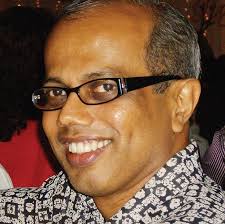What it means to speak truth to power
We may have come across the phrase “speak truth to power” at some point or another.
Jan 30, 2016

By Anil Netto
We may have come across the phrase “speak truth to power” at some point or another. What does it mean and where did that phrase come from?
The origins are often attributed to a book Speak Truth to Power: A Quaker Search for an Alternative to Violence, a study of international conflict published in 1955 after World War Two.
A foreword to the book says: “Our title, Speak Truth to Power, taken from a charge given to Eighteenth Century Friends, suggests that the effort that is made to speak from the deepest insight of the Quaker faith, as this faith is understood by those who prepared this study.”
The website synonym.com suggests that the origin of the phrase could be earlier: “In I Must Resist, a posthumous 2012 collection of African-American civil rights leader Bayard Rustin’s personal correspondence, Rustin states, in a 1942 letter, that the role of a religious group is to ‘speak the truth to power,’ a phrase he attributes to a speech by future ACLU president Patrick Malin. However, these words are not in the text of Malin’s speech, suggesting that Rustin himself coined the phrase.”
Apparently, Rustin was a co-author of the 1955 book Speak Truth to Power: According to the foreword of the book, we speak truth to power in three senses:
-- To those who hold high places in our national life and bear decision-making responsibility
-- To the people who are the final reservoir of power in the country and whose values and expectations set the limits for those who exercise authority.
-- To the idea of Power itself, and its impact on life in our times
(I have slightly paraphrased and edited these three points for general applicability, as the book was specifically concerned about showing that military power in the world is “incompatible with freedom, incapable of providing security, and ineffective in dealing with evil” and advocated a non-violent alternative approach.)
Whether the phrase “speak truth to power” was coined in 1955, 1942 or, in the 18th Century, the idea itself goes back much earlier.
Who can forget how John the Baptist admonished Herod the Tetrarch for marrying his brother’s wife — and paid for it with his life? Or, consider the sharp words John had for the Pharisees and the Sadducees, the keepers of the law and the wealthier class who had grown corrupt and hypocritical. “Brood of vipers,” he fumed. (Matthew 3:7).
Jesus himself certainly did not mince his words when referring to the religious elites who were also collaborating with the Roman power in oppressing the people. He lashed out at the scribes and Pharisees, calling them fools, hypocrites, white-washed tombs, blind guides, serpents and yes, brood of vipers. Strong, colourful language that didn’t leave much to the imagination, if you ask me.
“... they do not practise what they preach. They tie up heavy burdens and lay them on people’s shoulders, but will they lift a finger to move them? Not they!” (Matthew 23:3-4). “You… have neglected the weightier matters of the Law — justice, mercy, good faith! These you should have practised, not neglected” (Matthew 23:23).
Not surprisingly, both John and Jesus paid a heavy price for their prophetic words.
Going back even further, we have the Old Testament prophets.
The celebrated scholar Noam Chomsky was asked in an interview if he had read the Nivi’im (The Prophets, the second main division of the Hebrew Bible) with his father.
Chomsky replied: “The word prophet is a very bad translation of an obscure Hebrew word, navi. Nobody knows what it means. But today, they’d be called dissident intellectuals.They were giving geopolitical analysis, arguing that the acts of the rulers were going to destroy society. And they condemned the acts of evil kings. They called for justice and mercy to orphans and widows and so on.
“I don’t want to say it was all beautiful. Dissident intellectuals aren’t all beautiful. You read Sakharov, who is sometimes appalling. Or Solzhenitsyn. And the nivi’im were treated the way dissident intellectuals always are. They weren’t praised. They weren’t honoured. They were imprisoned like Jeremiah. They were driven into the desert. They were hated.”
On the other hand, Chomsky pointed out that there were also ‘prophets’ or intellectuals who were well treated because they were actually flatterers of the powers that be. It was only much later that people realised that these were false prophets.
Chomsky says his favourite prophet is Amos. “I particularly admired his comments that he was not an intellectual. I forget the Hebrew, but lo navi ela anochi lo ben navi — ‘I’m not a prophet, I’m not the son of a prophet, I’m a simple shepherd.’ So he translated ‘prophet’ correctly. He was saying, ‘I’m not an intellectual.’ He was a simple farmer and he just wanted to tell the truth. I admire that.”
Speaking truth to power is a great calling which requires much courage and strength and wisdom — for which we need to pray and ask. This calling applies to everyone, no matter what our vocation in life — whether politicians, religious leaders, journalists or humble shepherds like Amos.
Let us not flatter or turn a blind eye to those on the ‘dark side,’ engaging in evil and injustice and corruption, those who have “neglected the weightier matters of the Law — justice, mercy, good faith” while they “tie up heavy burdens and lay them on the people’s shoulders.”







Total Comments:0